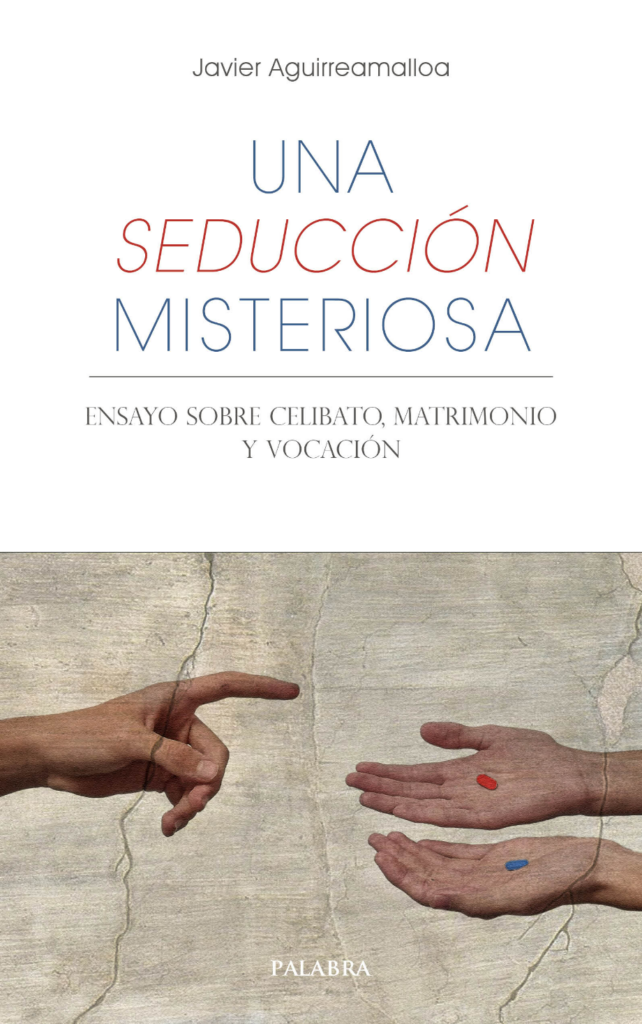There are short books that shed much light on relevant issues yet to be illuminated. "A mysterious seduction"is one such book, and the topic it delves into is the nature of celibacy, particularly that of celibates who live their lives as ordinary Christians, that is, without joining the religious state or the priesthood.
This work has a very personal approach, one of those that engage an author, although he hardly provides his own testimonies. Aguirreamalloa combines good doses of biblical theology, patristics, Church magisterium, philosophical anthropology and contemporary culture (there are brilliant quotes from Bono, Paul McCartney, William Faulkner or Aleksandr Solzhenitsyn). The reading is very fluid and gives a glimpse of the author's past as a screenwriter and film critic.
Explaining one's own identity
In the introduction he states the aim of the essay, to explain to himself his own identity, to find a "logos", an answer of reason, for the lives of those who, like him (a celibate layman of Opus Dei) choose the path of celibacy.
The explanation of the celibacy The author's proposal underlines the spousal nature, something that may surprise many as a layman, because spousal relationship with Jesus is a concept frequently applied to the religious state. However, the argumentative logic of the text is convincing and is heir, by the way, to his previous book, "The Greatest Love Story Ever Told", a systematic exposition of Christianity.
Spousal nature of celibacy
One of the usual explanations of celibacy is the analogy with friendship, since Christ calls his disciples friends. However, Aguirremalloa points out that friendship does not require exclusivity or daily frequency, but espousal does. In friendship you do not seek to fall in love, in espousal you do, so it makes sense to broaden the understanding of celibacy in this sense.
In contrast to other alternative paradigms of lay celibacy (celibacy as identification with the celibate Jesus or as friendship with Jesus), "A Mysterious Seduction" argues that lay celibacy is spousal. In fact, for the author, spousality is a fundamental characteristic of every Christian, as a member of the Church, the bride of Christ.
If the most essential aspect of the Christian (his "what") is divine filiation, being a child of God, the "how" of this relationship is a sacramental, Eucharistic how. And therefore, spousal. Here Aguirreamalloa connects with a broad tradition of the Church (cornered for centuries and recently revitalized) that has seen in the Eucharist (actualization of the paschal mystery) the "sacrum connubium" (the sacred wedding) that produces the "admirabile commercium" (the admirable exchange) of the human and divine natures.

Loneliness and healing
It is at this point where the greatest originality of the book appears. If the most nuclear aspect of marriage is the presence of the spouse to cure the loneliness of the human being ("It is not good that man should be alone. I am going to give him adequate help", Gen 2:18), its parallel in the life of the celibate is another presence, not that of another, but that of the Other; that of Jesus in the Eucharist.
Real presence to cure loneliness, a cure that will no longer be necessary in heaven, pure presence of the Other without any mediation, because in eternal life there is no male-female marriage, no sacrament of the Eucharist. This is the heart of the matter, which necessarily leaves aside a thousand nuances and other precious treasures present in the book.
Vocational discernment
A second part of the book (entitled "Celibacy or Marriage") is dedicated to vocational discernment. And once again the approach is fresh and original. Many have said that the free choice of life of those who have the right intention and the minimum aptitudes for the path in question is a manifestation of true divine vocation.
But, according to the author, this is not only compatible with the "It is not you who have chosen me, but I have chosen you..." but, in fact, it is the most coherent way with the divine nature of relating the freedoms of God and man. It is an attractive perspective, built from two suggestive (and little-traveled) visions of freedom, one from philosophy and the other from theology.








